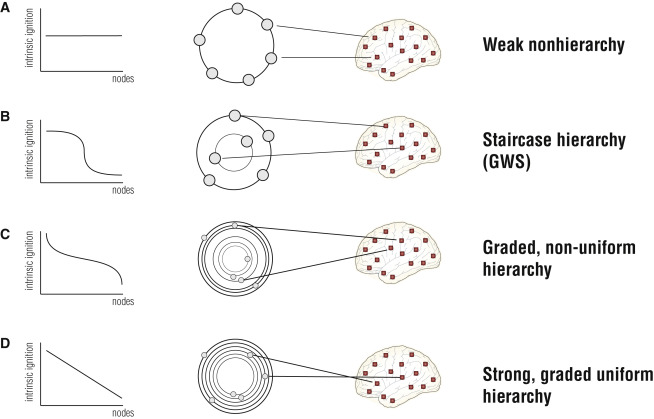A new concept, “intrinsic ignition”, could explain the overall functioning of the brain
A new concept, “intrinsic ignition”, could explain the overall functioning of the brain
A theory put forward by two world-renowned neuroscientists, Gustavo Deco and Morten L. Kringelbach, in a paper published in “Neuron”, to explain the overall functioning of the brain based on the propagation of its local activity. This is essential knowledge to characterize mental disorders and illnesses.
 The specialized journal Neuron is publishing a new work by the researchers Gustavo Deco and Morten L. Kringelbach, two scientists of world renown in the field of neuroscience. The article describes the breadth of communication promoted by the local activity of a group of neurons. It focuses on seeing how the local activity of specific areas of the brain affects its global functioning, how these signals propagate through networks and connection nodes and, given that there is a hierarchy in the processing of the signals that make up the propagation of information, how they end up influencing changes in the whole brain.
The specialized journal Neuron is publishing a new work by the researchers Gustavo Deco and Morten L. Kringelbach, two scientists of world renown in the field of neuroscience. The article describes the breadth of communication promoted by the local activity of a group of neurons. It focuses on seeing how the local activity of specific areas of the brain affects its global functioning, how these signals propagate through networks and connection nodes and, given that there is a hierarchy in the processing of the signals that make up the propagation of information, how they end up influencing changes in the whole brain.
To do so, the authors propose the concept of intrinsic ignition with which they refer to the natural disturbances that occur in a specific area of the brain that have the ability to start the propagation of neuronal activity to other brain regions, by units of time. Deco and Kringelbach consider that by characterizing the intrinsic ignition profile for a certain brain state, they achieve a simple way to investigate spatial and temporal diversity as well as direct evidence about the hierarchical structure of information processing in the neural network.
By combining this innovative methodological approach, based on real anatomophysiologic data, with the computational models currently available on the functioning of the brain in its entirety (the result of a whole line of research conducted by Gustavo Deco throughout his academic and scientific career), the authors hope to draw new knowledge about neuronal communication and its organization in a network. The aim is to understand altered states of consciousness and states far from equilibrium inherent to mental disorders and neurological and psychiatric diseases.
The method provides strong evidence of brain computing at many levels, from the individual neuron to the whole brain, though groups of specific neurons.
This research is being carried out thanks to the ERC DYSTRUCTURE Advanced Grant, the ERC CAREGIVING Consolidator Grant, and other competitive grants awarded for announcements by the Spanish Government.
Gustavo Deco is an ICREA research professor with the Department of Information and Communication Technologies (DTIC) and director of the Center for Brain and Cognition (CBC) at UPF and has recently been awarded two honorary appointments: he has been chosen as a research associate at the Max-Planck Institute of Leibniz (Germany), in the field of Human Cognitive and Brain Sciences, and a pre-tenured lecturer of the Faculty of Medicine at Monash University in Melbourne (Australia). Morten L. Kringelbach, co-author of the study, is a researcher at the Department of Psychiatry of the University of Oxford (United Kingdom) and the Department of Clinical Medicine of the University of Aarhus (Denmark). He is also a member of the Institute of Advanced Studies in Paris (France).
Reference work:
Gustavo Deco, Morten L. Kringelbach (2017), “Hierarchy of information processing in the brain: a novel ‘intrinsic ignition’ framework”, Neuron.
